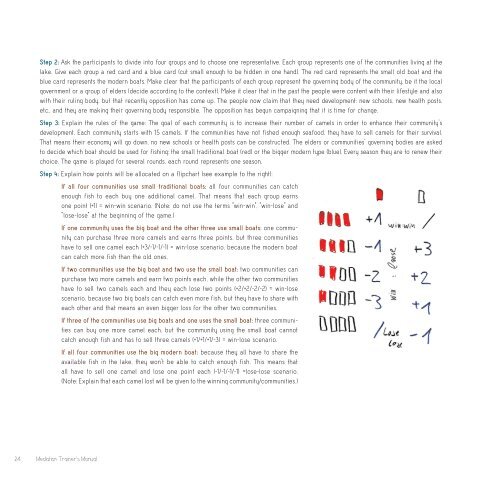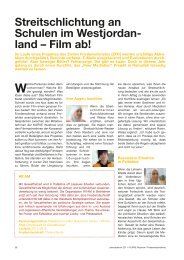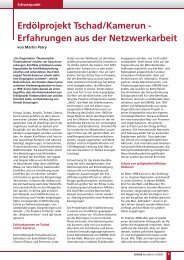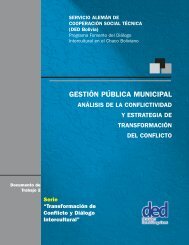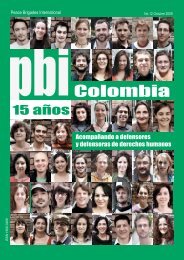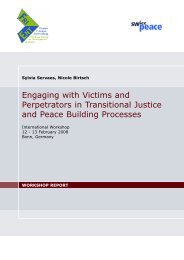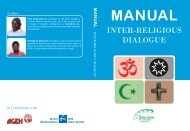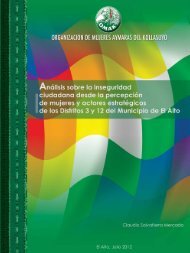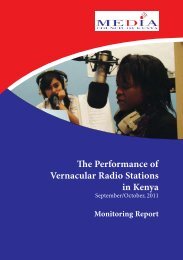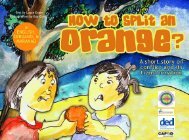Merging Ethiopian Wise-Counsel Mediation and Facilitative ...
Merging Ethiopian Wise-Counsel Mediation and Facilitative ...
Merging Ethiopian Wise-Counsel Mediation and Facilitative ...
- No tags were found...
Create successful ePaper yourself
Turn your PDF publications into a flip-book with our unique Google optimized e-Paper software.
Step 2: Ask the participants to divide into four groups <strong>and</strong> to choose one representative. Each group represents one of the communities living at thelake. Give each group a red card <strong>and</strong> a blue card (cut small enough to be hidden in one h<strong>and</strong>). The red card represents the small old boat <strong>and</strong> theblue card represents the modern boats. Make clear that the participants of each group represent the governing body of the community, be it the localgovernment or a group of elders (decide according to the context). Make it clear that in the past the people were content with their lifestyle <strong>and</strong> alsowith their ruling body, but that recently opposition has come up. The people now claim that they need development:—new schools, new health posts,etc., <strong>and</strong> they are making their governing body responsible. The opposition has begun campaigning that it is time for change.Step 3: Explain the rules of the game: The goal of each community is to increase their number of camels in order to enhance their community'sdevelopment. Each community starts with 15 camels. If the communities have not fished enough seafood, they have to sell camels for their survival.That means their economy will go down,—no new schools or health posts can be constructed. The elders or communities' governing bodies are askedto decide which boat should be used for fishing: the small traditional boat (red) or the bigger modern type (blue). Every season they are to renew theirchoice. The game is played for several rounds, each round represents one season.Step 4: Explain how points will be allocated on a flipchart (see example to the right):If all four communities use small traditional boats: all four communities can catchenough fish to each buy one additional camel. That means that each group earnsone point (+1) = win-win scenario. (Note: do not use the terms“"win-win",”"win-lose"”<strong>and</strong>"lose-lose" at the beginning of the game.)If one community uses the big boat <strong>and</strong> the other three use small boats: one communitycan purchase three more camels <strong>and</strong> earns three points, but three communitieshave to sell one camel each (+3/-1/-1/-1) = win-lose scenario, because the modern boatcan catch more fish than the old ones.If two communities use the big boat <strong>and</strong> two use the small boat: two communities canpurchase two more camels <strong>and</strong> earn two points each, while the other two communitieshave to sell two camels each <strong>and</strong> they each lose two points (+2/+2/-2/-2) = win-losescenario, because two big boats can catch even more fish, but they have to share witheach other <strong>and</strong> that means an even bigger loss for the other two communities.If three of the communities use big boats <strong>and</strong> one uses the small boat: three communitiescan buy one more camel each, but the community using the small boat cannotcatch enough fish <strong>and</strong> has to sell three camels (+1/+1/+1/-3) = win-lose scenario.If all four communities use the big modern boat: because they all have to share theavailable fish in the lake, they won't be able to catch enough fish. This means thatall have to sell one camel <strong>and</strong> lose one point each (-1/-1/-1/-1) =lose-lose scenario.(Note: Explain that each camel lost will be given to the winning community/communities.)24 <strong>Mediation</strong> Trainer’s Manual


